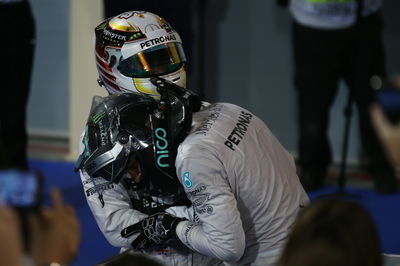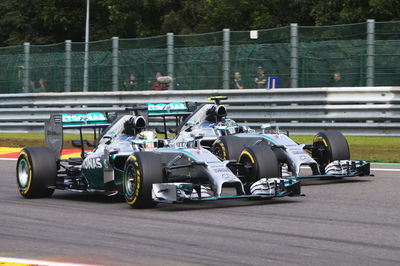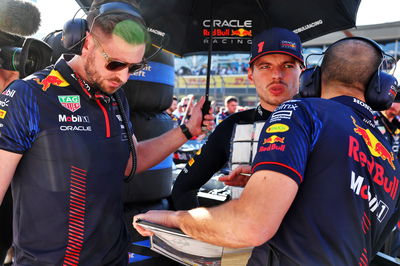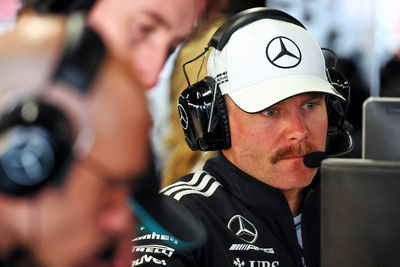Mercedes’ legendary ‘rules of engagement’ explained - by the man who devised it
James Vowles has explained how he came up with Mercedes' famous F1 'Rules of Engagement' policy.

Mercedes’ former head of strategy James Vowles has revealed he was the person who came up with the F1 team’s famous ‘Rules of Engagement’ policy.
The document was originally devised by Vowles during the height of Mercedes’ dominance of the V6 hybrid era which began in 2014. Knowing they would have an advantage over the field, Mercedes were keen to define exactly how their drivers should race each other, without the need to impose strict team orders.
It was hoped the document would prevent on-track clashes between teammates Lewis Hamilton and Nico Rosberg, but it couldn’t stop some explosive moments between the pair as they engaged in consecutive fierce title fights between 2014 and 2016.
Most notably, Hamilton and Rosberg came together on the opening lap of the 2016 Spanish Grand Prix in a crash that wiped out both Mercedes cars and opened the door for Max Verstappen’s historic debut win for Red Bull.
"Everyone will remember 2016 in Barcelona. It still sticks in my mind today, because you're taking two of these sportsman who are just constrained in their boxes and got frustrated,” Vowles, who is now team boss at Williams, said on the High Performance podcast.

"Both of the drivers in 2014, Nico [Rosberg] and Lewis [Hamilton], knew it was going to be one of those two winning the year. They knew before we turned the first wheel at the first race.
"I constructed a document which created some very clear 'How we are going to work with each other, how we will fight each other' and at the time it was called 'Rules of Engagement' but changed to something less military further down the line.”
Vowles explained how the first page of the document was dedicated to outlining the importance of sportsmanlike behaviour, citing how Michael Schumacher’s career is “still marred” by his blatant attempt to take out title rival Jacques Villeneuve at Jerez in 1997.
"That whole first page was about being a sportsman,” Vowles added. "To explain it, you can win a world championship but if you've done something unsportsmanlike, you will regret it for the rest of your life. It will be sullied, it won't be pure. We want to win things by doing things better than everyone else.
"Michael was an incredible man, but he's still marred by 1997. I didn't want to be remembered like that, I wanted to be remembered for being dominant. Within these rules, the fastest driver over 20 races will win and we'll give you each equal opportunities. And they bought into it."












